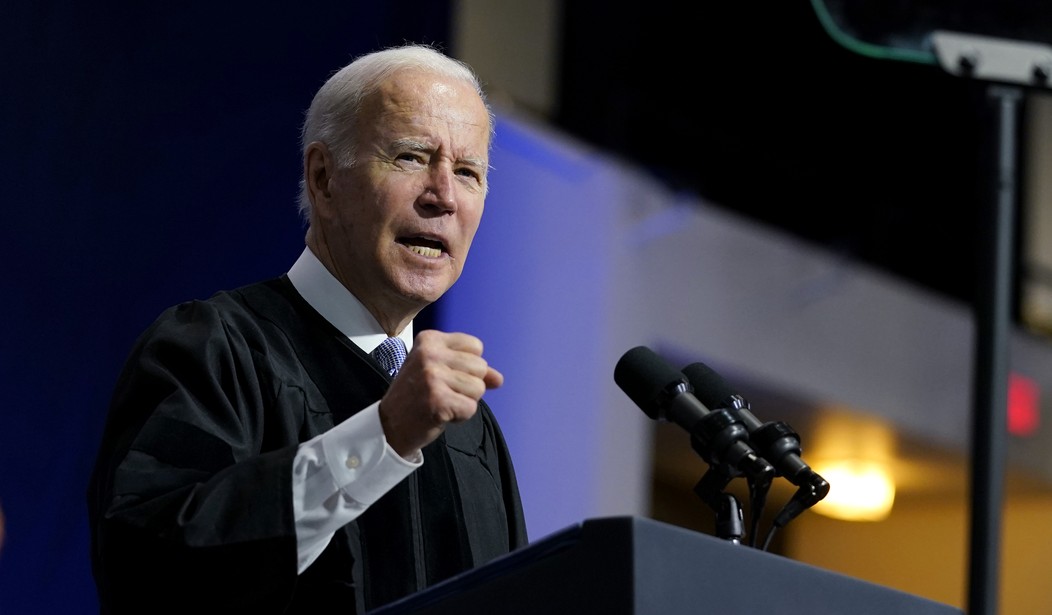For the last several months, the Democratic Party had been considering a new calendar for the primaries. The party decided that the Iowa Caucuses and New Hampshire primary — the traditional kick-off of the nominating contest — were just too “white.” Democrats believed they would do better by holding the earliest contests in “diverse” states. For instance, it wasn’t until the South Carolina primary — held more than a month after Iowa — that an appreciable number of black voters would participate in the nomination process.
Biden’s 2020 bacon was saved in South Carolina when, after three straight primary defeats and nearly being dismissed as a candidate, he rallied with the help of his friend Rep. Jim Clyburn and won. He was never headed after that.
This past week, Joe Biden sent a letter to the committee mulling changes to the Democratic primaries and left no doubt he was running for president in 2024.
The old primary order was the Iowa Caucuses, followed by the New Hampshire primary, then the Nevada Caucuses, and the initial primary stage ended with the South Carolina primary.
The new order proposed by Biden would make all the early contests primaries. South Carolina would be followed three days later by New Hampshire and Nevada, followed by Georgia, followed by Michigan. It’s no accident that Nevada and Michigan are ahead of most other states, as they have very heavy union participation. And Georgia and South Carolina have heavy black participation.
Biden and his advisers deliberated at length before springing the proposal late on Thursday. They shared their thinking with the co-chairs of the Rules and Bylaws Committee, James Roosevelt Jr. and Minyon Moore, but few others. Jamie Harrison, the Democratic National Committee chair and a South Carolinian, did not learn that his state was being moved to the front of the line until Thursday night while attending the state dinner for French President Emmanuel Macron. Harrison spoke emotionally about the changes after they were adopted.
Biden outlined the principles behind his thinking in a letter to Rules and Bylaws Committee members released Thursday evening. He said he wants economic, geographic and demographic diversity, an end to caucuses, and regular reviews in the future of the calendar.
The only issue that should influence the primary schedule is if it answers “yes” to the question, will it result in the best possible candidate? The vast majority of people who will vote for president don’t care about how diverse the electorate is or the demographics of a state’s voters.
Or what color the voters in the primary state are.
Perhaps most important, he said he believes it is essential to ensure that voters of color “have a voice” earlier in the process and especially noted that Black voters, “the backbone of the Democratic Party,” have previously been “pushed to the back of the early primary process.”
“It is time to stop taking these voters for granted, and time to give them a louder and earlier voice in the process,” Biden said. He also believes there should no longer be caucuses, which have fallen into disfavor because they generally require participants to show up at specified times and as a result are seen as undemocratic.
What Biden didn’t mention is that caucuses demonstrate superior organizational skills and the power of persuasion. And is he really making the argument that black people are incapable of showing up at a “specified time” to participate in a caucus?
In truth, caucuses are indeed elitist and undemocratic — a sad holdover from a time of bosses and smoke-filled rooms. But Biden is managing to put his thumb on the 2024 scale anyway by scheduling contests that guarantee he will win.
Related: The Rise of the Democrat Vote Machine (and How to Beat It)
And if Biden still wants an out, the schedule also favors Vice President Kamala Harris, Biden’s logical successor if he were not to run.
Harris is the first Black woman ever elected on a national ticket, and Black voters often make up a majority of the Democratic primary electorate in South Carolina — with Black women voting in higher numbers than Black men. Even as her favorability numbers have languished far below the break-even point in national polls, her standing has remained strong with Black voters — at 67.4 percent in the latest YouGov survey of registered voters.
“It sets her up,” said Pete D’Alessandro, an Iowa-based Democratic strategist who served as a senior adviser on Vermont Sen. Bernie Sanders’ 2020 bid. “I’m thinking Pete Buttigieg is not really happy with this one.”
The new calendar doesn’t guarantee a Biden run in 2024. But as any good politician knows, it’s always best to keep your options open.










Join the conversation as a VIP Member